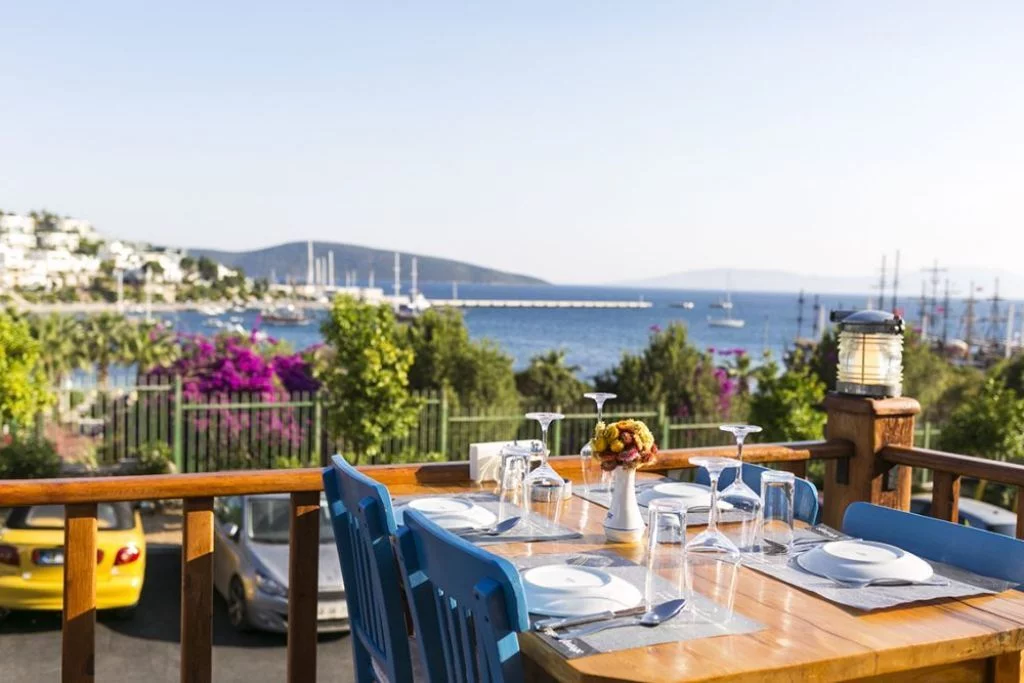As Turkey’s tourism industry navigates the complexities of 2024, rising costs and shifting tourist preferences are proving to be significant challenges.
The country’s renowned hospitality and vibrant culture have long attracted visitors from around the world, but current economic conditions and changing tourist behavior are impacting this once-booming sector.
Price Pressures in the Hospitality Sector
Despite Turkey’s sustained popularity as a travel destination, the Turkish Hoteliers Association (TÜROB) has reported that accommodation prices have not seen significant increases this year.
Müberra Eresin, President of TÜROB, emphasized that despite inflationary pressures and a weakening Turkish lira, hotel prices have remained relatively stable. This strategy aims to maintain Turkey’s competitive edge, particularly against neighboring countries like Greece.
Eresin explained, “The quality of hotels and services in Turkey is among the best in the world. However, maintaining these standards amidst rising costs has become increasingly challenging.” She highlighted that while Turkey is striving to keep its tourism offerings affordable, the economic environment is making it difficult to avoid price hikes entirely.
Shifts in Tourist Preferences
While Turkey remains a popular destination for many, there has been a noticeable shift in tourist preferences. Traditional hotspots such as the Aegean and Mediterranean coasts are experiencing lower occupancy rates as domestic tourists, affected by the rising prices, opt for more budget-friendly destinations.
At the same time, international tourists are exploring alternative routes, with destinations like Spain, Greece, and Egypt emerging as preferred options over Turkey. This trend is particularly concerning as it indicates a potential shift in market dynamics that could affect Turkey’s tourism revenues in the coming years. Record visitor numbers and income in Spanish tourism are among the most significant indicators of this trend.
The Impact of Economic Pressures
The impact of the fluctuating Turkish lira and the overall global economic situation is not lost on the industry. “We are facing difficulties due to the significant increase in exchange rates,” Eresin noted. “This creates a tough environment where our profits are eroded, and we cannot pass on the cost increases to tourists without risking a drop in visitor numbers.”
Eresin also advised hotels to be cautious about raising prices and instead suggested finding creative ways to maintain profitability without compromising service quality. She even humorously added, “A tip for tourists: eat before you arrive at the airport to save on costs,” reflecting the broader cost-saving measures being considered by travelers.
Kaan Kavaloğlu, Chairman of the Mediterranean Touristic Hoteliers and Operators Association (AKTOB), emphasized that despite the financial pressures, Turkey remains committed to offering its natural and cultural beauty to visitors. “Those who want to visit Greece can go, but our preference is to showcase the beauty of our own country,” he stated, addressing the growing interest in Greek vacations among Turkish tourists.
Kavaloğlu also pointed out the negative impact of misinformation and social media criticism on the industry, urging travelers to share their experiences and pictures to compare the services and beauty of Turkish destinations like Antalya with those in Greece.
The Greek Islands Appeal
The rising costs in Turkey, coupled with the recent introduction of visa-on-arrival policies for the Greek islands, have made Greece an increasingly attractive option for many Turkish tourists. This shift has led to a significant increase in the number of Turkish tourists choosing to vacation in the Greek islands, with some reports indicating a 70% rise in visits.
Mehmet Ayyıldız, Chairman of the Marmaris Chamber of Craftsmen and Artisans, noted that this trend has negatively impacted the local tourism sector, with many businesses seeing a 30-40% decline in profits. Ayyıldız warned that the perception of cheaper vacations in Greece might be misleading, as additional costs such as visas and transportation can add up. He expressed hope that as tourists become more aware of these hidden costs, the trend may reverse.
Economic and Industry Concerns
The influx of Turkish tourists to Greece has led to decreased domestic tourism within Turkey. Ayyıldız highlighted that compared to July 2023, there was a 30-40% decrease in the number of local tourists opting for domestic vacations in July 2024. This decline is attributed to both the appeal of the Greek islands and the impact of inflation on Turkish consumers.
In addition to fewer tourists, the length of vacations has also shortened significantly. “Where once a local tourist would take a 10-day vacation, now they are opting for only 3-5 days,” Ayyıldız observed, underscoring the economic strain on Turkish households.
Looking Ahead: Hopes for Recovery
Despite the current challenges, there is cautious optimism within the Turkish tourism sector. Industry leaders believe that as the true costs of traveling to Greece become more apparent, and as Turkey continues to offer competitive and high-quality tourism experiences, the trend may stabilize.
Ayyıldız concluded with a hopeful outlook: “We believe that as tourists realize that vacations in the Greek islands are not as cheap as they seem once all expenses are accounted for, this trend will come to an end. We remain committed to promoting Turkey’s unique offerings to both local and international tourists.”
As Turkey continues to invest in its tourism infrastructure and hospitality offerings, the hope remains that the country can regain its momentum and continue to be a favored destination for travelers worldwide.
















